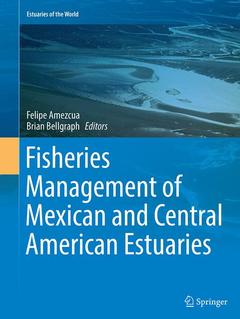Description
Fisheries Management of Mexican and Central American Estuaries, Softcover reprint of the original 1st ed. 2014
Estuaries of the World Series
Coordinators: Amezcua Felipe, Bellgraph Brian
Language: English
Subjects for Fisheries Management of Mexican and Central American...:
Publication date: 09-2016
Support: Print on demand
Publication date: 08-2014
213 p. · 21x27.9 cm · Hardback
Description
/li>Contents
/li>Biography
/li>Comment
/li>
Felipe Amezcua is a research professor at the Institute of Marine Science and Limnology of the National University of Mexico and is based at a station of the Institute in Mazatlan. He specializes in the ecology of estuarine and coastal fish of the Gulf of California as well as small-scale fisheries. He completed his undergraduate studies in Biology at the Faculty of Science from the National University of Mexico and received his Ph.D. in Marine Biology from the University of Liverpool (UK).
Brian Bellgraph is a fisheries scientist for Battelle Memorial Institute at the Pacific Northwest National Laboratory (PNNL), one of nine United States Department of Energy federal research laboratories. He primarily studies fish ecology and behavior and the impacts of energy production on fisheries sustainability, but has additional interests in artisanal and subsistence fisheries. Brian obtained a Master’s of Science degree in Fish and Wildlife Management from Montana State University and a Bachelor’s of Science in Fisheries and Wildlife Management from Michigan State University.




